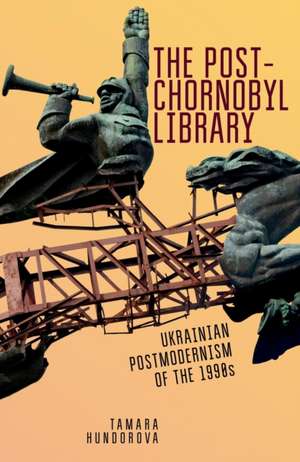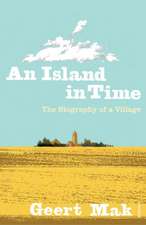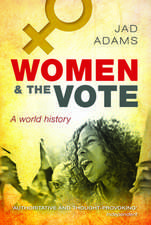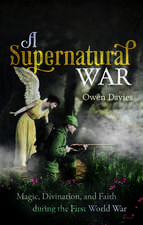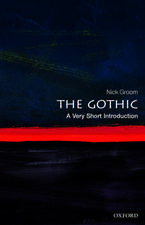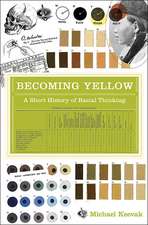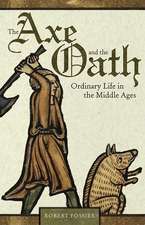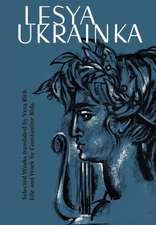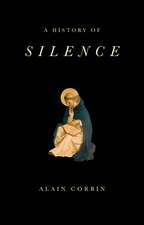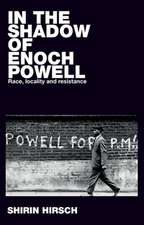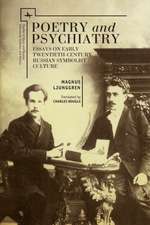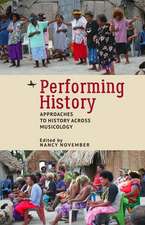The Post-Chornobyl Library: Ukrainian Studies
Autor Tamara Hundorova Traducere de Sergiy Yakovenkoen Limba Engleză Paperback – 26 noi 2019
Preț: 276.06 lei
Nou
Puncte Express: 414
Preț estimativ în valută:
52.83€ • 55.09$ • 43.91£
52.83€ • 55.09$ • 43.91£
Carte disponibilă
Livrare economică 28 februarie-14 martie
Preluare comenzi: 021 569.72.76
Specificații
ISBN-13: 9781644692387
ISBN-10: 1644692384
Pagini: 338
Dimensiuni: 156 x 234 x 18 mm
Greutate: 0.47 kg
Editura: Academic Studies Press
Seria Ukrainian Studies
ISBN-10: 1644692384
Pagini: 338
Dimensiuni: 156 x 234 x 18 mm
Greutate: 0.47 kg
Editura: Academic Studies Press
Seria Ukrainian Studies
Cuprins
Table of Contents Preface
1. Nuclear Discourse, or Literature after Chornobyl
2. Nuclear Apocalypse and Postmodernism
3. The Socialist Realist Chornobyl Discourse
4. Nuclear (Non)-Representation
5. Chornobyl and Virtuality
6. Chornobyl and the Cultural Archive
7. Chornobyl Postmodern Topography
8. Chornobyl and the Crisis of Language
9. Postmodernism: The Synchronization of History
10. Ukrainian Postmodernism: The Historical Framework
11. A Farewell to the Classic
12. The ¿Ex-Centricity¿ of the Great Character
13. Postmodernism and the ¿Cultural Organic¿
14. Postmodernism as Ironic Behavior
15. Bu-Ba-Bu: A New Literary Formation
16. The Carnivalesque Postmodern
17. Yuri Andrukhovych¿s Carnival: A History of Self-Destruction
18. After the Carnival: Bu-Ba-Bu Postmortem
19. Narrative Apocalypse: Taras Prokhasko¿s Topographic Writing
20. The Virtual Apocalypse: The Post-Verbal Writing of Yurko Izdryk
21. The Grotesques of the Kyiv Underground: DibroväZholdak¿Poderviansky
22. Feminist Postmodernism: Oksana Zabuzhko
23. Postmodern Europe: Revision, Nostalgia, and Revenge
24. The Chornobyl Apocalypse of Yevhen Pashkovsky
25. The Postmodern Homelessness of Serhiy Zhadan
26. Volodymyr Tsybulko¿s Pop-Postmodernism
27. The (De)KONstructed Postmodernism of Yuriy Tarnawsky
28. PS. A Comment from the ¿End of Postmodernism¿
29. Types of Postmodernism
1. Nuclear Discourse, or Literature after Chornobyl
2. Nuclear Apocalypse and Postmodernism
3. The Socialist Realist Chornobyl Discourse
4. Nuclear (Non)-Representation
5. Chornobyl and Virtuality
6. Chornobyl and the Cultural Archive
7. Chornobyl Postmodern Topography
8. Chornobyl and the Crisis of Language
9. Postmodernism: The Synchronization of History
10. Ukrainian Postmodernism: The Historical Framework
11. A Farewell to the Classic
12. The ¿Ex-Centricity¿ of the Great Character
13. Postmodernism and the ¿Cultural Organic¿
14. Postmodernism as Ironic Behavior
15. Bu-Ba-Bu: A New Literary Formation
16. The Carnivalesque Postmodern
17. Yuri Andrukhovych¿s Carnival: A History of Self-Destruction
18. After the Carnival: Bu-Ba-Bu Postmortem
19. Narrative Apocalypse: Taras Prokhasko¿s Topographic Writing
20. The Virtual Apocalypse: The Post-Verbal Writing of Yurko Izdryk
21. The Grotesques of the Kyiv Underground: DibroväZholdak¿Poderviansky
22. Feminist Postmodernism: Oksana Zabuzhko
23. Postmodern Europe: Revision, Nostalgia, and Revenge
24. The Chornobyl Apocalypse of Yevhen Pashkovsky
25. The Postmodern Homelessness of Serhiy Zhadan
26. Volodymyr Tsybulko¿s Pop-Postmodernism
27. The (De)KONstructed Postmodernism of Yuriy Tarnawsky
28. PS. A Comment from the ¿End of Postmodernism¿
29. Types of Postmodernism
Descriere
Having exploded on the margins of Europe, Chornobyl marked the end of the Soviet Unionand tied the era of postmodernism in Western Europe with nuclear consciousness. The Post-Chornobyl Library becomes a metaphor of a new Ukrainian literature of the 1990s, which emerges out of the Chornobyl nuclear trauma.
